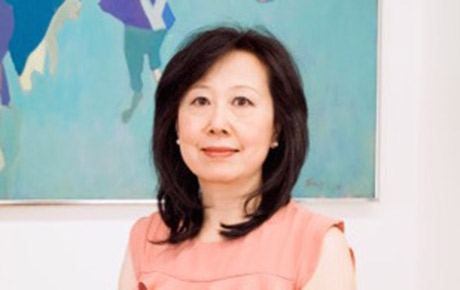How Second Languages Are Learned: Exploring best practices at major forum held at TC

The four-day forum (October 22-25), sponsored by TC’s Center for International Foreign Language Teacher Education, featured 280 concurrent sessions and four plenary speeches. (View a documentary of SLRF2016@TC.)
ZhaoHong Han, Professor of Language and Education and Director of the Center, said the forum both advanced the momentum for research in instructed second language learning and allowed educators to understand research-based methods of second language instruction that can effectively help millions of learners worldwide.
The four plenary speakers celebrated the history of Instructed Second Language Acquisition research while also giving attendees an overview of the most advanced lines of inquiry in the field.
Rod Ellis, Distinguished Professor of Applied Language Studies at the University of Auckland, invoked the psychologist Lev Vygotsky’s contention that thinking occurs first on a social plane, between people engaged with one another, and subsequently on an individual plane. Ellis has advanced a set of principles of second language acquisition, including that the opportunity to interact in a second language is essential to learning it; that successful learning requires opportunities for output (speaking or writing) as well as input (listening or reading); and that such learning also proceeds from taking account of the learner’s “built-in syllabus.”
Roy Lyster, Professor of Second Language Education at McGill University, discussed the need to improve venues such as language immersion programs to respond to the needs of the world’s ever more diverse student population. Lyster advocates so-called “instructional counterbalance,” which unites opportunities to process language through noticing and production with negotiation of language through interaction.
Heidi Byrnes, Distinguished Professor of German Emerita at Georgetown University, argued that the age of globalization, with its accompanying multilingualism and multiculturalism, has called into question terms such as “language” and “heritage.” She believes instruction must emphasize self-expression, identity construction and meaning-making in a social context.
Michael Long, Professor of Second Language Acquisition at the University of Maryland, a proponent of Task-Based Language Teaching (using real-world tasks as a vehicle of teaching, learning, and assessment), discussed key methodological issues and presented new research questions and directions.
Sarah Sok, one of seven doctoral students in applied linguistics at TC who organized the forum, called the event a celebration of the research conducted over the last 35 years, but added that it also laid the groundwork for future research.
“The stances taken by the four plenary speakers represented a broad spectrum of positions on instructed second language acquisition,” added Sok. “SLRF attendees – scholars, researchers, teachers and students -- left the conference with thoughts to ponder and ideas brewing in their minds for their future research projects or instructional practices.”
It took the student organizing committee a year and a half to put together the conference, and in that process, they interacted closely with some 10 offices across the College.
“It was the synergy among them that made the event a phenomenal success,” said Han. – Robert Florida
Published Friday, Oct 21, 2016